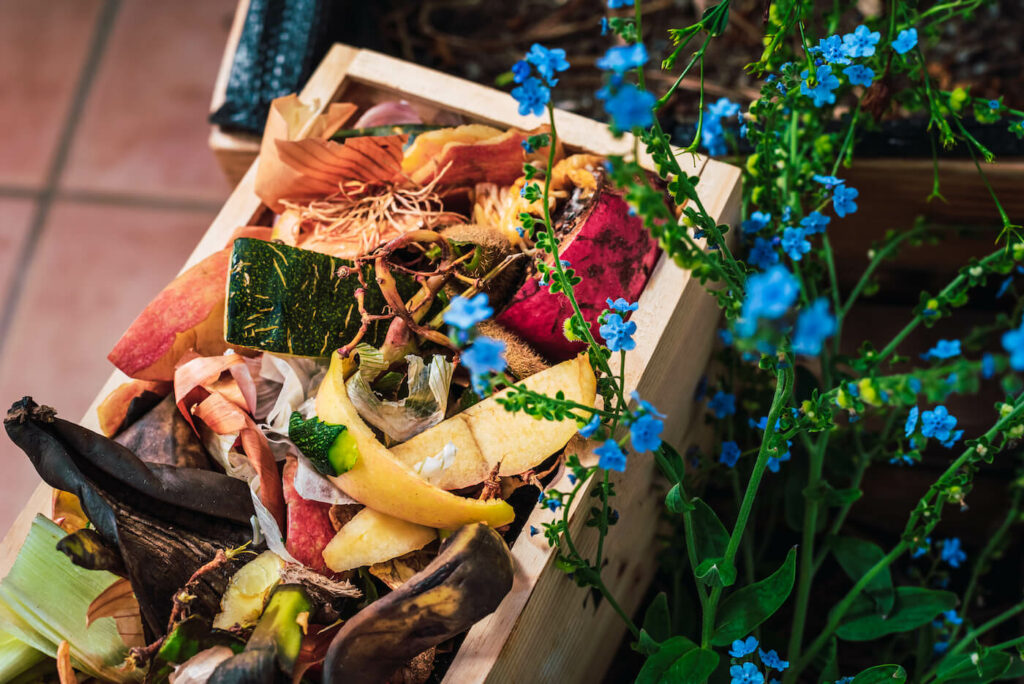How To Remove Organic Waste?

Organic waste is anything microorganisms can break down into simple compounds like water, carbon dioxide, and methane. Examples of these are food scraps and garden organics. You might think that these characteristics make this rubbish easier to dispose of. But today, the world's generating more organic waste than we can handle.
Based on the 2022 National Waste Report, Australia alone produced 48 million tonnes of organic waste, including food, timber, and garden waste (14.4 million tonnes). Unfortunately, only 58% of which are recycled or repurposed. The rest rot in landfills, contributing to 3% of the country's greenhouse gas emissions.
There are effective ways to remove organic waste to reduce these emissions and divert rubbish from landfills.
1. Composting
Unlike plastics, organic waste doesn’t last thousands of years. Instead, microorganisms help them break down into simple compounds. That said, organics aren’t meant to go to landfills. One of the best ways to dispose of them is composting.
Composting is the process of recycling organic matter. Specifically, it facilitates the production of humus for topsoil and vegetation enrichment. The good thing about this method is that it’s easy to make. All you need is a tiny bit of land and this beginner’s guide to composting:
- Choose your compost bin or pile location
- Know what organic waste are compostables
- Layering
- Base layer: twigs, mulch, and old potting mix
- Second layer: green and brown waste (e.g. fruits and vegetables, kitchen scraps, loose tea and coffee grounds, and wet paper)
- Last layer: soil or finished compost
- Wait for the compost to turn brown and crumbly
If you aren’t ready yet to make your compost pit, just make sure to throw your compostable organic waste in your community compost bins.
2. Anaerobic Digestion (Biogas Production)
Another emerging sustainable method of organic waste disposal is anaerobic digestion, or the process of converting organics like food waste, biosolids, and garden waste into renewable energy (biogas or methane) or fertilisers.
Specifically, the process involves microorganisms that can break down organics without oxygen and is typically done inside a sealed vessel called a digester. There are 242 digesters in Australia, producing about 1442 GWh of power annually.
You can be part of this sustainable movement by getting in touch with anaerobic digestion facilities across the country.
3. Local Council Pick-up
You can always count on free local council waste pick-ups if you don’t know any recycling facility or have little to no space for composting organic waste. This way, you won’t have to endure the rotting smell of food and garden waste. You’ll just need to keep these council pick-up details in mind for a successful collection:
- Accepted types of waste
This can vary for every council. Your council may offer all or some of the following kerbside collection services:
- Garden organics (GO), for garden waste only.
- Food organic and garden organics (FOGO).
- Separate food organic (FO) services.
- Your council’s pick-up rules and guidelines
Apart from waste type, guidelines on waste volume, pick-up time, waste preparation, and many more vary among councils. To ensure successful collection, make sure to check out your council’s guidelines.
- Number of free council pick-ups
Each council offer varying free council pick-ups. But it usually varies from 2 to 6 collections per calendar year. Once you exceed this limit, you’ll have to pay for the succeeding collections.
- Collection date and time
Available pick-up dates are usually shown on your council’s online booking website. Hence, check it out before making plans for your organic waste.
Make sure to know these before placing your organic waste on the kerbside or your lawn. Otherwise, you might find yourself in trouble for illegal dumping.
4. Using Skip Bins
Already used up your allocated council waste pick-ups?
No problem! You can always hire skip bins to dispose of your organic waste. Upon making the request, skip bins for organic waste disposal will be sent to you. Once you’ve filled the bins, the skip bin company will come to your place and collect them during the agreed collection date and time.
But remember, choosing this method means you have to sort your waste. You cannot mix organic waste like garden or household rubbish with bulky items, as this would make the collection difficult. Hence, it’s best to know the different types of rubbish before hiring a skip bin.
Another important consideration when booking skip bins is lawn space. If you don’t want to be in trouble with the authorities and be charged with illegal dumping, make sure that you have enough space to cater to the bins, as some councils forbid placing them on kerbsides or public properties.
5. Rubbish Removal Services
But if you want a method that effectively removes your organic waste and keeps you stress-free, a rubbish removal service is for you. Our experts at All Gone Rubbish Removals have the equipment, experience, and skill set to sort, collect, and take your organic waste to recycling centres.
With our help, you won't have to lift a finger and worry about your waste type and volume. Whether garden waste, furniture, white goods, construction scraps, or almost any type of waste, we can properly remove them for you. We offer affordable same-day rubbish removal services throughout Sydney, Central Coast, and Newcastle. Call us at 0427 783 277 for a free quote and to get started!
- Is Fibro Asbestos? Understanding The Difference - July 14, 2025
- Household Hot Water Tank Disposal in Sydney - July 14, 2025
- Garage Clean Out & Clearance Services Sydney - July 14, 2025
